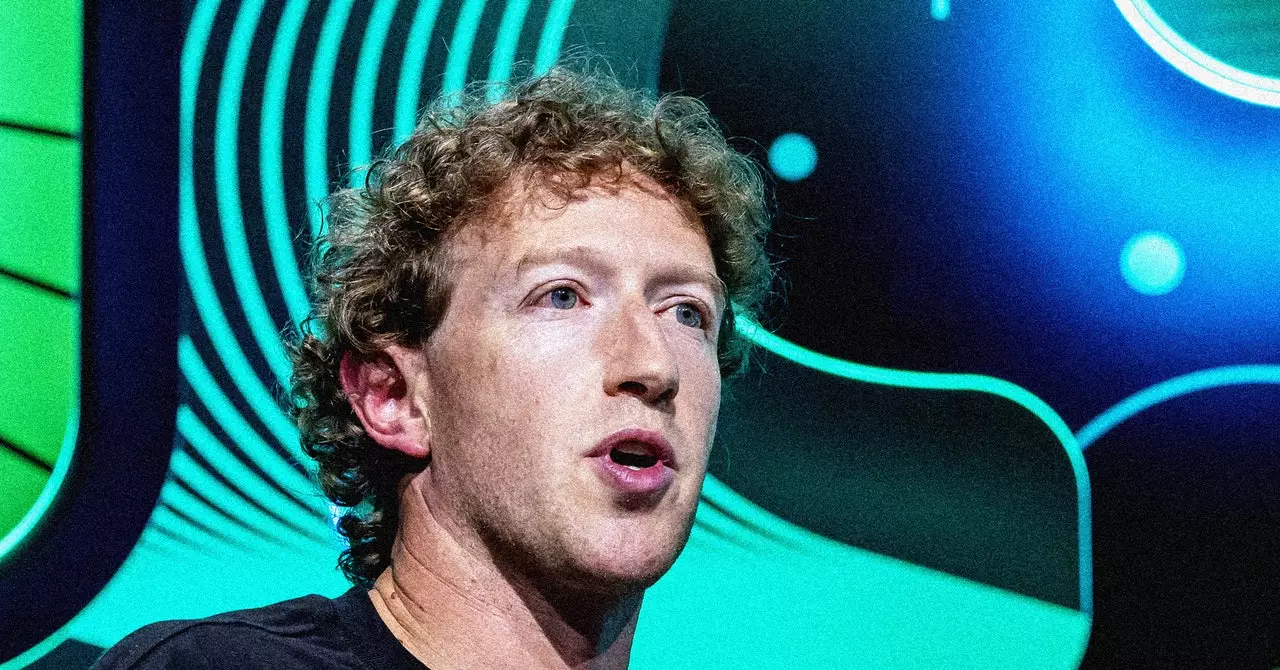In the ever-shifting landscape of social media, Mark Zuckerberg’s journey—from a perceived champion of responsible content moderation to a figure now seen as succumbing to populist pressures—reflects a broader struggle over the role of technology in safeguarding truth and promoting discourse. As the CEO of Meta, Zuckerberg once envisioned a platform where moderation would actively combat misinformation and hate speech, but recent changes have sparked deep concern about the implications for journalism, accountability, and societal discourse.
Back in 2018, Zuckerberg’s narrative was built around the necessity of increased content moderation. During an intimate discussion in his home, he laid out a plan to hire more moderators and leverage artificial intelligence to tackle harmful content. He recognized the damaging potential of unchecked toxicity on the platform and stated his commitment to making substantial changes in the way content was handled. The message was clear: Facebook was ready to take a more proactive stance against harmful speech.
However, fast forward to 2025, and Zuckerberg’s narrative has flipped dramatically. He publicly repudiated the very principles he championed just a few years prior, characterizing his former moderation efforts as an overreaction to governmental influences during the pandemic. The new direction, which includes dismantling fact-checking programs and allowing for more “free expression,” raises eyebrows about the essential role of social responsibility in digital communication. By endorsing a crowdsourced method of fact-checking—termed “community notes”—Zuckerberg seems to signal a disturbing regression to a reliance on subjective interpretations rather than rigorous journalistic standards.
One of the most troubling aspects of this shift is Zuckerberg’s apparent devaluation of traditional journalism. By equating legacy media with censorship and stifling of free speech, he has set a dangerous precedent. This view diminishes the critical work that professional journalists engage in, which is grounded in research, accountability, and fact-based reporting. The use of “legacy media” as a derogatory term reflects a broader anti-establishment sentiment that undermines public confidence in institutions designed to provide reliable information.
The new community notes approach, while an attempt to democratize information, threatens to lead to fragmentation of truth and a free-for-all environment where misinformation can thrive. Disinformation can spread rapidly when community members are left to discern veracity without the backing of trusted fact-checkers. This introduces a dangerous dynamic where powerful narratives, often driven by influential figures, can overshadow evidence-based reporting and rational discourse.
The switch from established fact-checking methods to a community-based approach assumes that all voices are equally credible. This assumption is flawed. It posits that disparate strands of opinion can coexist without any framework for evaluating their legitimacy. While empowering users to engage with content may sound appealing, it poses significant risks; the unfiltered nature of such a system can lead individuals down rabbit holes of conspiracy and confusion.
Community notes may serve as a platform for alternative viewpoints but lack the rigor and credibility that professional journalistic practices provide. This reality becomes even more pronounced when faced with the rejection of factual evidence—a phenomenon increasingly observable in public discourse. The erosion of trust in verified information directly aligns with the strategies employed by political figures seeking to dismantle established channels of accountability, pitting unverified narratives against well-founded facts.
As Zuckerberg reshapes Meta’s stance, it serves as a microcosm of a larger societal issue. The retreat from responsibility in moderating harmful content mirrors a growing trend of calling into question the integrity of established institutions. The cultural implications are significant; when misinformation is allowed to flourish unchecked, we risk sowing division, mistrust, and polarizing viewpoints.
Ultimately, Zuckerberg’s transformation from a cautious steward of social media to an architect of relaxed moderation reflects both personal and industry-wide inflection points. It raises pressing questions about what kind of discourse we want to foster on platforms that have become central to public interaction. As we continue to navigate this complex landscape, it is imperative to critically evaluate not just the tools for communication, but also the values that underpin their use. The ongoing dialogue around truth, accountability, and the responsibility of digital platforms is far from over, but one thing is certain: the stakes have never been higher.

